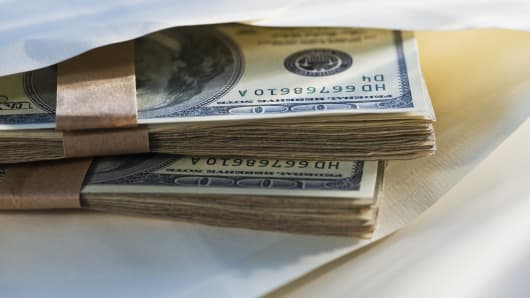
Daniel Grill | Getty Images
The case of an aspiring Michigan businessman has reignited the debate over limits to the federal government's ability to seize property of those it suspects of being involved in criminal activity.
Joseph Rivers of Dearborn was on his way to California to start a career as a music video producer when he was stopped by DEA agents in New Mexico, who seized $16,000 in cash Rivers had in a bank envelope, theAlbuquerque Journal reported.
Rivers' story is one of many from U.S. citizens who say the government unfairly seized their assets under the Justice Department's Asset Forfeiture Program. The program empowers a number of federal agencies working with the DOJ to seize property and assets that are used in or derived from a criminal enterprise.
When assets are seized in connection with a prosecution, it's known as a criminal asset forfeiture. In civil asset forfeitures, a "preponderance of the evidence" is needed by law enforcement to seize goods, according to the FBI.
Assets seized can be anything from airplanes to headphones and clothing. But the vast majority is cash. In 2014, government agencies seized $4.6 billion in more than 10,000 forfeitures, 91 percent of the year's total.
Critics say civil asset forfeiture is at best overused and targets innocent people and at worst is a cash cow for local law enforcement agencies. In 2014, the federal government distributed the equivalent of $4.8 million to municipalities around the country.



No comments:
Post a Comment